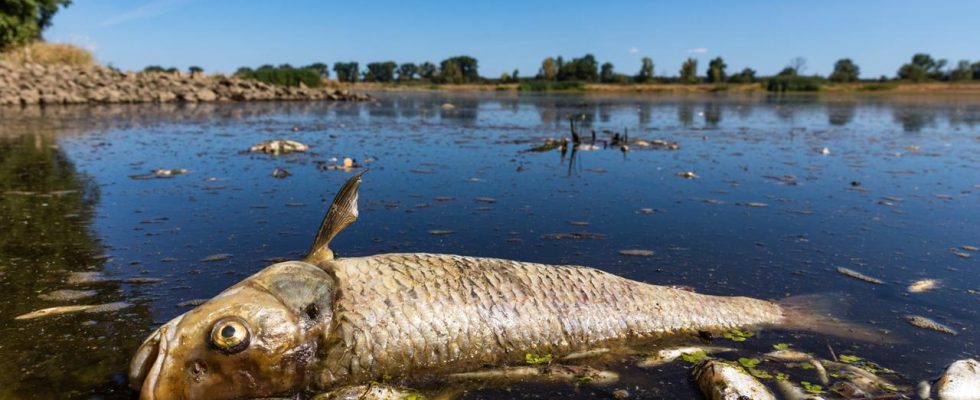How to protect the Oder and other rivers from environmental disasters? That’s what a conference in Schwedt, Brandenburg, is all about. The Federal Minister for the Environment invited.
Dead fish as far as the eye can see: it was unsightly images of the Oder that made their way through the media last year. According to the Federal Environment Agency, the toxic brackish water algae were responsible for this. It was able to spread rapidly, among other things, due to saline sewage and rising temperatures.
Even if the river is slowly recovering, the body of water is still not doing well, says Federal Environment Minister Steffi Lemke. “If low water levels, high temperatures and salt come together again with the presence of the algae, then I’m worried that something like this can happen again,” explains the Green politician.
Ideal breeding ground for the algae
Lemke is not alone in her worries. The President of the Federal Environment Agency, Dirk Messner, describes the situation in the Oder as “tense”. He expects the temperatures to remain high for a long time this year – in combination with saline sewage and sinking levels, the ideal breeding ground for an explosive proliferation of brackish water algae.
If it comes to that, the spread can hardly be stopped, says Lemke. Certain river sections, such as tributaries, for example, could only be protected with barriers if they were detected early.
One instrument in the fight against such natural disasters is monitoring, i.e. the monitoring and control of bodies of water. “But we should generally discuss how we want to protect our bodies of water and rivers under the general conditions of global warming,” says Messner.
Information submitted too late
The Polish authorities in particular are under massive criticism because the reporting chains are said to have not worked properly last summer. According to the Ministry of the Environment, the information about the catastrophe arrived in Germany much too late.
In the meantime, talks had taken place to ensure that the German and Polish authorities could exchange information more quickly if the worst came to the worst. Nevertheless, in an interview with “Spiegel”, Minister Lemke held Poland responsible: Poland must reduce the discharge of saline water.
Other rivers are also at risk
But other bodies of water in Germany are also at risk. Things are not looking good for most German rivers, Lemke warns: “With a few exceptions, the freshwater ecosystems are in a poor and endangered state.” In the past decades, the bodies of water have primarily been viewed as waterways and have also been massively polluted with chemical substances.
Lemke believes that things must now be changed quickly before such catastrophes happen again. Today’s Oder Conference in Schwedt, Brandenburg, could be a first step. In addition to the Federal Environment Minister, Brandenburg’s Environment Minister Axel Vogel and experts from research and the environment will also be present.

